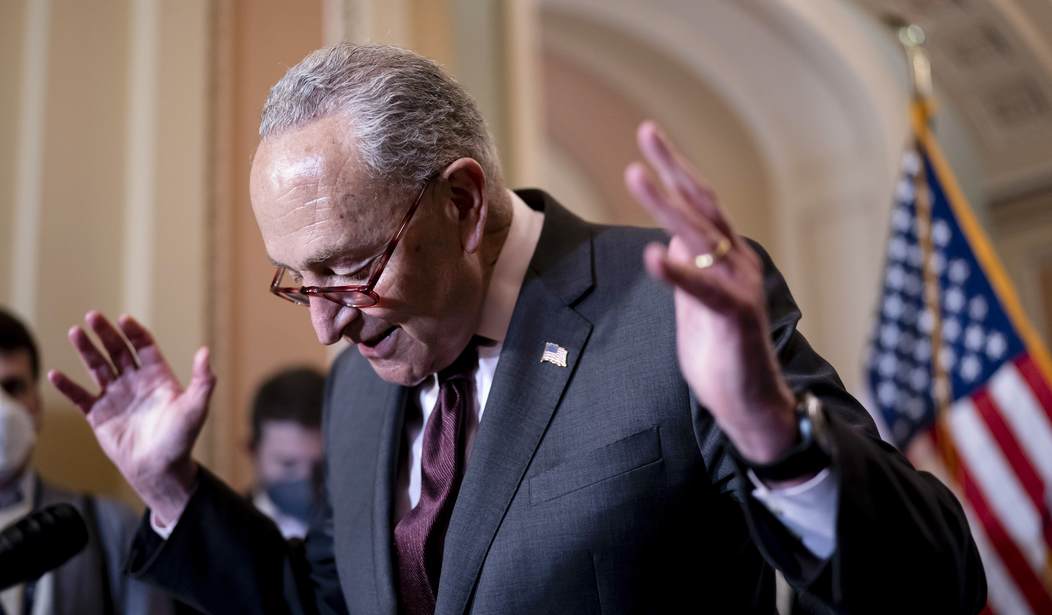Republicans may win control of Congress in November, but that control won’t take effect until the new Congress assembles on Jan. 3, 2023. In the intervening two months, Democrats will try to squeeze every last bit of legislation they can from their majority.
“We still have much to do and many important bills to consider,” Majority Leader Chuck Schumer said in remarks on the Senate floor at the end of September. “Members should be prepared for an extremely, underline extremely, busy agenda in the last two months of this Congress.”
Just how much trouble can the Democrats cause? Fortunately, there are very few issues on which all 50 Democratic Senators agree upon. But two major agenda items that must be addressed are the spending bill to avoid a slow-motion government shutdown beginning Dec. 16 and the passage of a huge defense bill.
Government funding is the most pressing priority that lawmakers will confront during the lame duck. The current deadline for the expiration of funding is December 16 after the House and Senate passed an extension to avert a shutdown at the end of September.
Since the funding bill is viewed as must-pass legislation it will likely become a magnet for other priorities that lawmakers may try to tack on to ride along with it. It’s possible that further aid for Ukraine could come up as Ukraine continues to counter Russia’s invasion of the country. While that funding has bipartisan support, some conservatives are balking at the pricey contributions to Ukraine and may scrutinize more closely additional requests from the administration, a dynamic that is dividing Republicans on this key issue.
Democrats also want more funding for pandemic response, but Republicans have pushed back on that request.
Republicans will almost certainly try to use the government funding bill to rein in the January 6 Committee. Democrats will continue attempts to use the committee for political purposes in an effort to damage Donald Trump for any potential 2024 run. The GOP could use the funding for the justice Department to make the work of the J6 Committee harder.
The funding request for Ukraine will be one of the more contentious agenda items Democrats will try to pass. The amounts being discussed are huge — at least $50 billion over the next year. The size of the appropriation is due to the potential difficulty in getting any more funding through a Republican Congress.
For our VIPs: Is Ukraine Funding a Hill That the GOP Wants to Die On?
It wouldn’t be good politics to cut off funding for the Ukrainian military just as they’re winning the war. But Joe Biden has had a blank check since February and it’s long past time for Congress to practice its oversight function.
A Senate vote to protect same-sex marriage is also on tap for the lame-duck session. In mid-September, the chamber punted on a vote until after the November midterm elections as negotiators asked for more time to lock down support – a move that could make it more likely the bill will ultimately pass the chamber.
The bipartisan group of senators working on the bill said in a statement at the time, “We’ve asked Leader Schumer for additional time and we appreciate he has agreed. We are confident that when our legislation comes to the Senate floor for a vote, we will have the bipartisan support to pass the bill.” The bill would need at least 10 Republican votes to overcome a filibuster.
Schumer has vowed to hold a vote on the bill, but the exact timing has not yet been locked in.
The same-sex marriage bill will probably pass but the abortion bill envisioned by activists doesn’t have a prayer. It would need 60 votes in the Senate and right now, it’s nowhere close to that.
There are likely to be votes on other cherished left-wing causes but they won’t get very far. And in January of 2023, some much-needed course corrections will be forthcoming on a variety of issues, setting the stage for 2024.










Join the conversation as a VIP Member